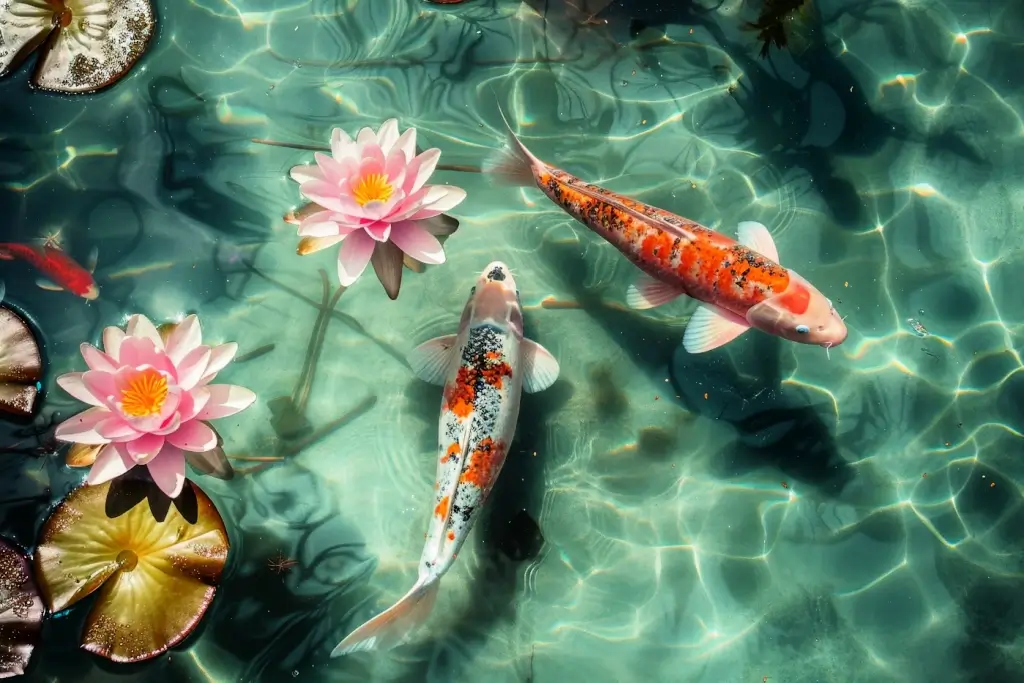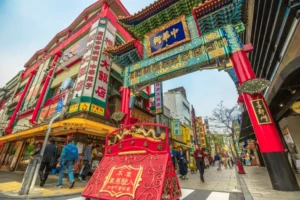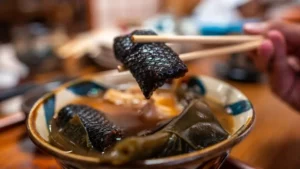Koi fish are admired worldwide, but they hold cultural significance in Japan. Known as symbols of strength, koi are celebrated in myths and traditions. Alongside koi fish, other animals like cranes, deer, cats, and tanuki carry powerful meanings in Japanese tradition. These creatures represent values such as harmony, hope, and adaptability. Their stories, steeped in tradition, connect the natural and human worlds.
Table of Contents
ToggleKoi Fish
Koi fish are revered in Japan, symbolizing resilience and personal growth. According to legend, koi that swim upstream and conquer waterfalls transform into dragons, representing victory. Their multicolored scales symbolize prosperity and success, a metaphor for achieving one’s dreams. Koi ponds embody peace, balance, and perseverance, making koi fish a staple in traditional Japanese gardens, temples, and art.
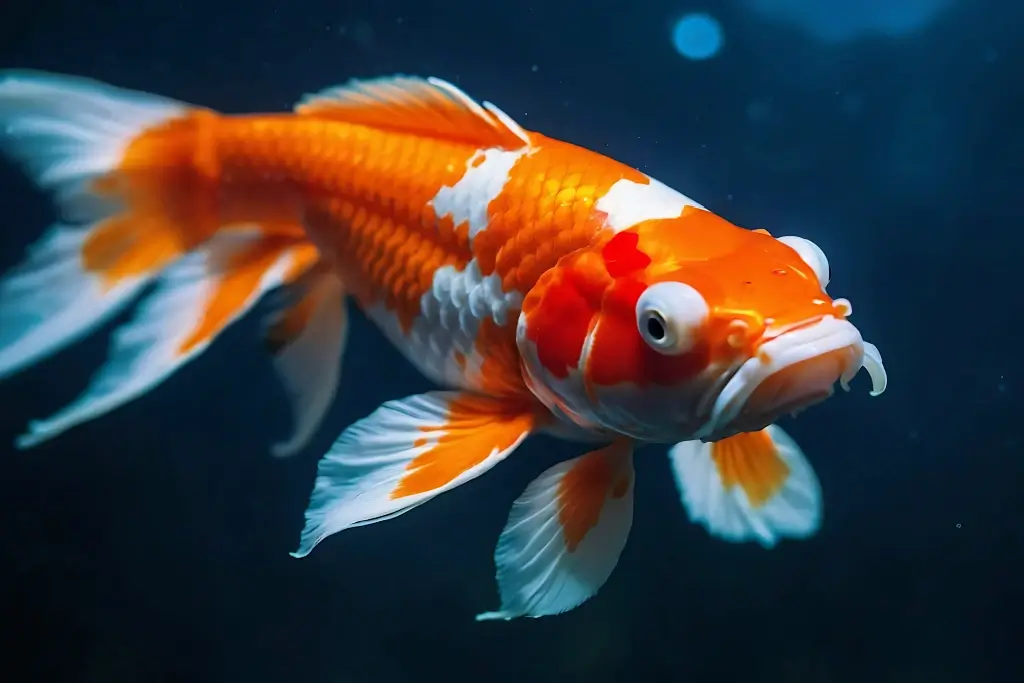
In festivals like Children’s Day, koi-shaped streamers called koinobori fly high. Koi are also popular in tattoos and paintings, symbolizing courage and ambition. Their association with transformation inspires people to embrace challenges and strive for greatness. Representing beauty and determination, koi hold a special place in Japanese culture. They serve as a reminder that persistence can lead to extraordinary results.
Crane
The crane, known as tsuru in Japanese, symbolizes long life, peace, and happiness. In Japanese folklore, people believe cranes live for 1,000 years and serve as divine messengers. Their graceful movements and elegant appearance have made them popular symbols in weddings and celebrations, representing eternal love and prosperity. Cranes are also depicted in art and literature, embodying beauty, dignity, and peace.
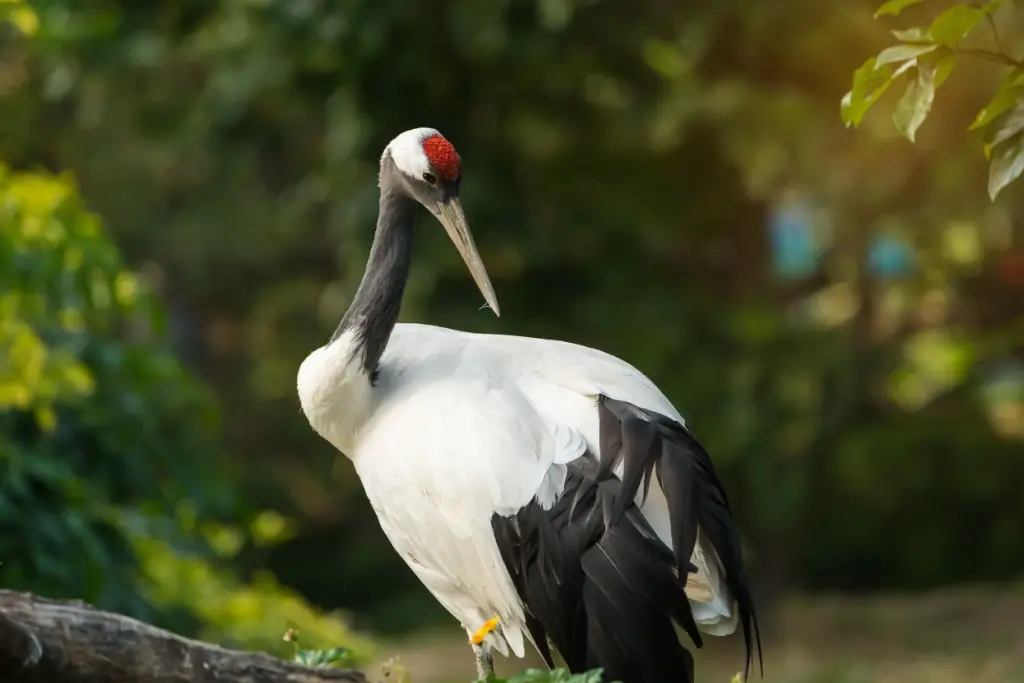
Origami cranes represent hope and healing in the face of hardship. According to legend, folding 1,000 cranes may grant a wish, a tradition that has become a global symbol of peace. Cranes inspire peace and optimism in paintings, textiles, and sculptures. From traditional tales to modern activities, the crane inspires and unites people. This majestic bird reminds us of the desire for harmony and happiness.
Are you looking for great Japanese snacks? Check out Sakuraco! Sakuraco delivers traditional Japanese sweets, snacks, and tableware from across Japan to your door monthly so you can have an authentic Japanese experience at your convenience!
Deer
Deer are sacred animals in Japan, where they are considered divine messengers. According to Shinto beliefs, deer were companions of the gods and a direct connection to the spiritual world. Today, the free-roaming deer in Nara Park are national treasures. Visitors feed these gentle creatures, respecting the connection between humans and nature. Their presence represents respect and coexistence with all living beings.
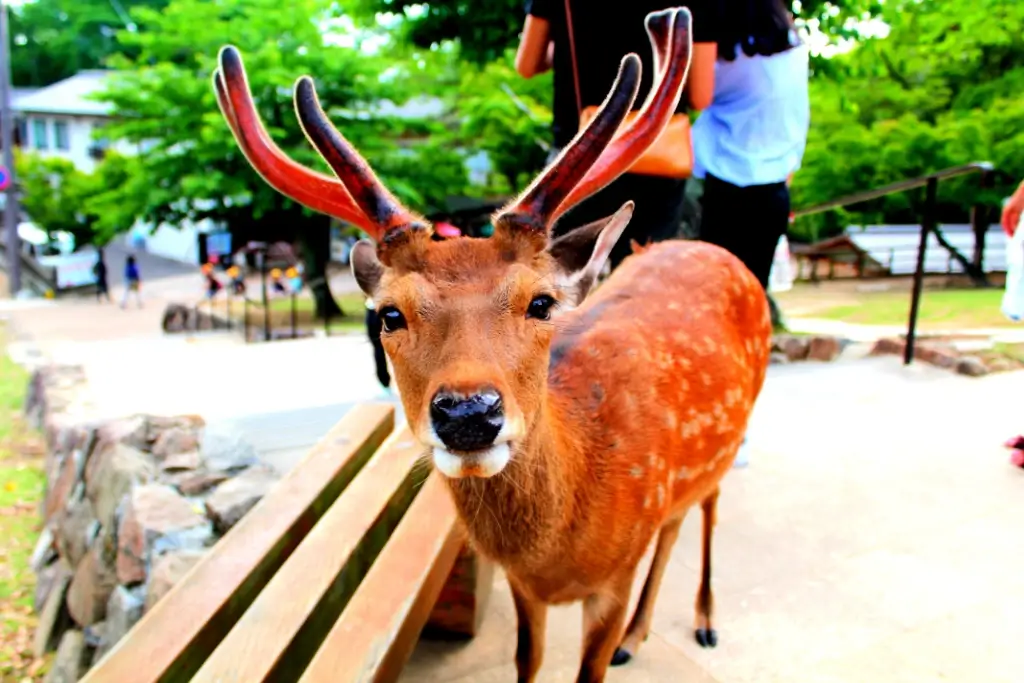
Beyond their sacred status, deer symbolizes harmony and gentleness in Japanese art and literature. They are often depicted in tranquil forest scenes. Deer are frequent subjects in waka poetry, where their quiet grace inspires reflections on life and the seasons. Their symbolism extends to traditional festivals and rituals. In every context, the deer bridges the earthly and the spiritual.
Cats
Cats in Japan are symbols of luck, prosperity, and protection. The iconic maneki-neko, or “beckoning cat,” is a popular figure in homes and businesses, believed to attract wealth and good fortune. With one paw raised, the maneki-neko invites success, a common sight in storefronts and restaurants. This association stems from stories of cats in Japanese folklore, where they are often magical and wise creatures.
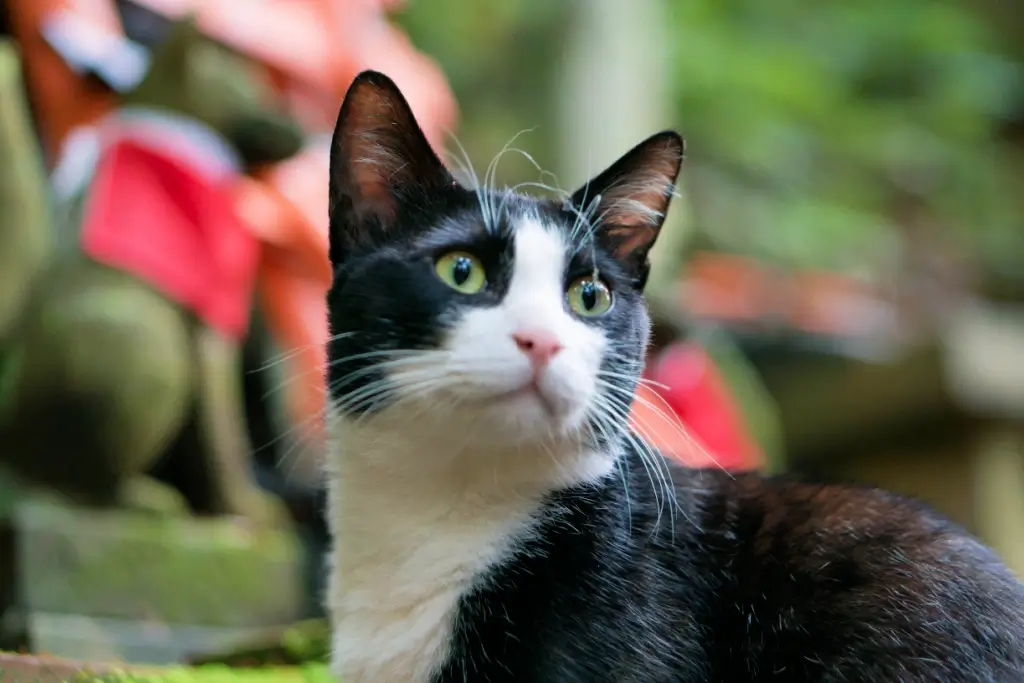
They are special Japanese pop culture, from traditional kabuki plays to modern anime and cat cafes. They often appear in myths and legends as both helpful and mischievous spirits. The duality of cats, as both bringers of fortune and playful tricksters, reflect lightheartedness and mystery in Japanese traditions. Through their symbolism, cats remind people to have fun and enjoy their life.
Tanuki
The tanuki, or Japanese raccoon dog, is one of the most playful creatures in Japanese folklore. Notable for their ability to transform, tanuki are depicted as tricksters who use their powers to create illusions and play harmless pranks. Despite their nature, they are symbols of joy and good fortune. Statues of tanuki are also outside shops and homes. These figures often carry a sake bottle, emphasizing their association with good times.
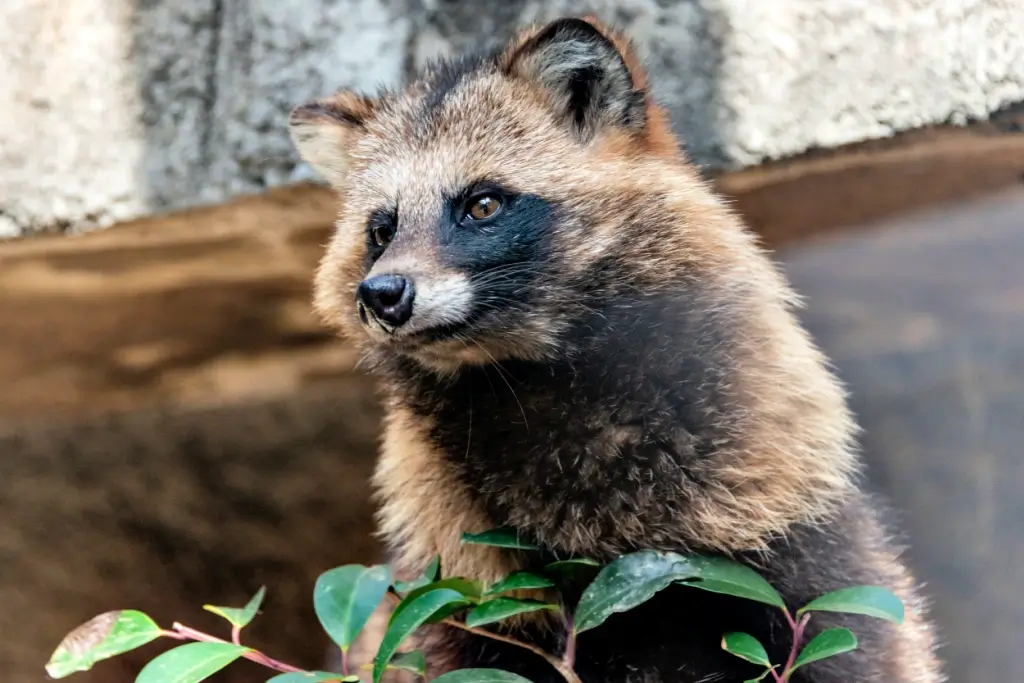
In myths, tanuki are moral teachers, cautioning against greed and dishonesty while encouraging a sense of humor. Their stories highlight the value of balance—finding joy without causing harm to others. In modern Japan, the tanuki’s image is an icon, appearing in literature, anime, and tourism campaigns. These creatures remind people to embrace life’s playful moments while staying grounded in kindness and generosity.
Why are these symbolic animals important?
People value these symbolic animals because they reflect Japan’s deep cultural and spiritual roots. Each animal represents perseverance, harmony, and joy. They connect people to nature, encouraging respect and gratitude for the world around them. These creatures connect traditions and modern practices through their roles in festivals, art, and stories. They teach lessons about resilience, hope, and living in harmony with others.
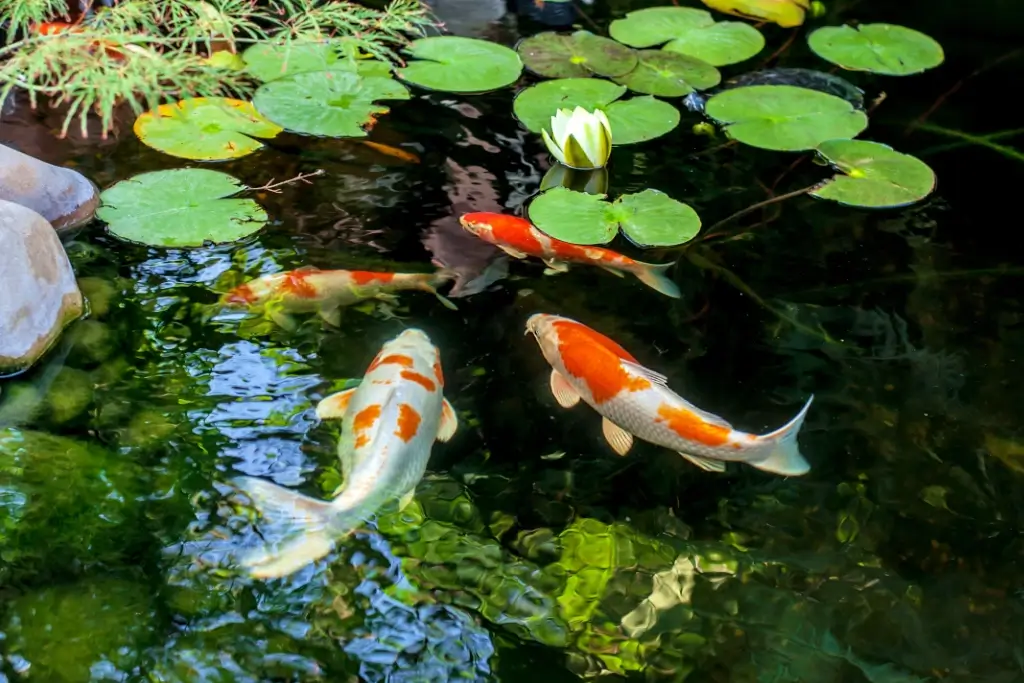
These animals also help preserve Japan’s heritage, inspiring future generations. Whether koi fish swimming upstream or cranes symbolizing peace, their symbolism transcends time and continues to resonate with people. They serve as a reminder of the importance of coexistence and balance in life. By cherishing these animals, Japan celebrates its history while embracing the future. Which of these symbolic animals speaks to you the most? Share your thoughts, and tell us how these fascinating creatures inspire you!

